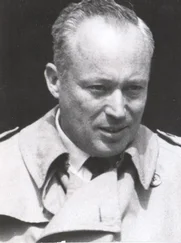Armageddon - Leon Uris
Здесь есть возможность читать онлайн «Armageddon - Leon Uris» весь текст электронной книги совершенно бесплатно (целиком полную версию без сокращений). В некоторых случаях можно слушать аудио, скачать через торрент в формате fb2 и присутствует краткое содержание. Жанр: Старинная литература, на английском языке. Описание произведения, (предисловие) а так же отзывы посетителей доступны на портале библиотеки ЛибКат.
- Название:Leon Uris
- Автор:
- Жанр:
- Год:неизвестен
- ISBN:нет данных
- Рейтинг книги:4 / 5. Голосов: 1
-
Избранное:Добавить в избранное
- Отзывы:
-
Ваша оценка:
- 80
- 1
- 2
- 3
- 4
- 5
Leon Uris: краткое содержание, описание и аннотация
Предлагаем к чтению аннотацию, описание, краткое содержание или предисловие (зависит от того, что написал сам автор книги «Leon Uris»). Если вы не нашли необходимую информацию о книге — напишите в комментариях, мы постараемся отыскать её.
Leon Uris — читать онлайн бесплатно полную книгу (весь текст) целиком
Ниже представлен текст книги, разбитый по страницам. Система сохранения места последней прочитанной страницы, позволяет с удобством читать онлайн бесплатно книгу «Leon Uris», без необходимости каждый раз заново искать на чём Вы остановились. Поставьте закладку, и сможете в любой момент перейти на страницу, на которой закончили чтение.
Интервал:
Закладка:
“Death records of Schwabenwald.”
“They were found in the basement.”
“ Ja . I put them there for safekeeping.”
Dante took the ledger back and opened the cover. “This is your handwriting?”
“Ja.”
“Your entries?”
“Ja.”
“Herr Himmelfarb. We have fourteen more ledgers like this one.”
“Thank goodness. I thought they might have been lost.”
“Recording 116,000 death certificates issued from Schawabenwald Concentration Camp.”
“Ja. That would be correct. Fifteen ledgers, 116,000 deaths recorded.”
“Of these, 110,000 are listed as either heart failure or natural causes.”
“Ja.”
“What is meant by ‘natural causes’?”
“I have no idea,” Himmelfarb answered.
“Did it ever occur to you that there was something strange about being handed a thousand death certificates because of heart failure in a given week?”
“I had no thoughts about it one way or the other. My job is merely to see if the certificate is legal and then record it.”
“It never entered your mind that mass murder was being committed?”
“I beg of you, Lieutenant. I am a mere civil servant I do not have opinions. My duty is to keep records and that is all I do. Just keep records.”
“Herr Himmelfarb!” Dante shouted with rising wrath, “were you a member of the Nazi Party?”
“Ja. I was a member. Please remember that my position was nonpolitical. Strictly nonpolitical.”
“You wore a uniform?”
“Ja.”
“With swastikas on it?”
“Ja.”
“You attended Nazi Party meetings?”
“Ja, of course.”
“Nazi rallies?”
“But we all had to attend meetings and rallies. Even on my day off I had to attend whether I wanted to or not.”
“Did you want to?”
“Never!”
“But you did attend them.”
“What choice did I have? Look, Lieutenant, I had very good Jewish friends, even.”
“What happened to them?”
“I don’t know. They disappeared.”
“Did you ever inquire what happened to them?”
“One did not do that.”
“Did you offer them help before they disappeared?”
“It was too dangerous, but I felt very badly when they were taken away.”
“But you were a party member, right?”
“Don’t you understand, Lieutenant? I joined the Nazi Party for only one reason ... to keep my position.”
Dante had reached the boiling point. Sean held up his hand. “Save your breath, Dante. O’Toole!”
The orderly tumbled into the office.
“Lock him up.”
Dante flung up his hands in frustration. “How many have we talked to today? Twenty? Thirty? None of them say, it was my fault. None of them say ... forgive me. ‘I joined the party to save my job.’ ‘I had a good friend who was a Jew.’ ‘Strictly nonpolitical.’ ”
“The Jews are lucky to have so many good German friends,” Sean said. “So there we have it. No one knows anything. Factory foremen who didn’t know they were using slave labor ... people working on the river front who didn’t even see the slaves being marched over every day ... doctors, nurses, professors at the college who didn’t know their colleagues were at the ‘research center’ in the concentration camp ... no one saw the trains coming in to Ludwigsdorf. ... It really never happened.”
“Why did they keep these records?” Dante asked.
“Because, in their warped logic, it is a basis to legalize and justify the murder in Schwabenwald. Of course we will never know how many of those poor people from outside Germany were denied even a death certificate.”
“We did not know,” Count Ludwig said to Sean.
“The record to date is perfect. Twenty-nine people out of twenty-nine interrogated so far did not know. Twenty-two of them had good friends who were Jewish, and twenty-four had nonpolitical Nazi affiliations to hold their jobs.”
“You can not blame us for the work of a single madman. Klaus Stoll was insane, obviously.”
“You might be interested in knowing that Schwabenwald was merely one of many of the same. Here’s a few more names that have just come in. You read English. Read it.” He handed him the paper.
Graf Ludwig read the dispatch from headquarters ... Dachau ... Ravensbruck ... Buchenwald ... reports from the Russian front indicate that in Poland ...
“In God’s name, Major. We are a civilized people.”
“God’s name has been used rather freely in the last few days.”
“You cannot blame an entire nation for the doings of a handful of Nazis.”
Sean grunted a small ironic laugh. There were stacks of files on his desk. He found the one he wanted, opened it, and walked to the count. There were photographs of the City Hall Square of Rombaden in another day. All the buildings—City Hall, the college, hospital, museum, and even the cathedral—were covered with swastika buntings. A long row of brown-shirted SA men stood with tall, thin-tapered torches leading to a grandstand where thousands more in black shirts and death’s head insignias held swastika standards. There were tens of thousands more in Hitler Youth and SS uniforms holding the Nazi salute. And there were thousands more who could not jam into the square listening over loudspeakers in joined barges on the river. It seemed as though not a person could be missing from Rombaden’s population. Some women cried in ecstasy at the sight of the Fuehrer. Blown-up segments of the photographs identified the three Von Romsteins and Father Gottfried and almost all of those other “nonpolitical” Nazis.
All of this had taken place outside the window of Sean’s office, where now the dead from Schwabenwald were being taken out of Marienkirche.
Masses, screaming ecstatic masses. Hear the drums! Hear his voice! Sieg Heil! Sieg Heil! Sieg Heil! The trumpets and the marching boots.
“Is that what you call a handful? Is that a handful in the square?”
“These pageants were designed to inflame the lower classes. Masses anywhere in the world are obsessed with uniforms.”
Sean slammed his fist on the table. “But they don’t go insane when they get in a crowd like Germans do!”
“Major, I tell you that Schwabenwald is the work of a few people. You saw for yourself how completely hidden and guarded the place was. It was a word spoken of only in whispers.”
“The smell. Was it smelled in whispers? During the spring and early winter you have south winds. What happened when the smell reached Rombaden? We have twenty-six answers. Ten of them had no opinion about the smell, five thought it was a leather factory, four a fertilizer plant, one a chemical plant, and eleven didn’t smell a thing. What did you think about the smell?”
Ludwig Von Romstein twitched in the first visible sign of discomfort Sean had seen.
“You are chief benefactor of the Medical College and of the Research Center. You entertained those doctors in Castle Romstein. You gambled with them at the Kurhaus. Did they discuss their experiments? Did you know your good money was going for a hundred castrations and ovarectomies a day! From Castle Romstein you can see the village of Ludwigsdorf, is that not correct?”
There was no answer.
“Is that not correct!”
“It is correct.”
“Your servants and your farmers trade and live in Ludwigsdorf. You go to your church in Ludwigsdorf. It is the traditional family church. What did you think when trainloads of open gondola cars passed through Ludwigsdorf filled with corpses? Well, goddammit, what did you think?”
“All of us knew to close our eyes, our ears, and our mouths if we wanted to stay alive.”
“What did you think about your factory being operated by slave labor for six years? They were marched over the bridge every day in front of the whole goddamned city! What did you think?”
Читать дальшеИнтервал:
Закладка:
Похожие книги на «Leon Uris»
Представляем Вашему вниманию похожие книги на «Leon Uris» списком для выбора. Мы отобрали схожую по названию и смыслу литературу в надежде предоставить читателям больше вариантов отыскать новые, интересные, ещё непрочитанные произведения.
Обсуждение, отзывы о книге «Leon Uris» и просто собственные мнения читателей. Оставьте ваши комментарии, напишите, что Вы думаете о произведении, его смысле или главных героях. Укажите что конкретно понравилось, а что нет, и почему Вы так считаете.











